第49章 CHAPTER XX(2)
We had two ordinary mule-drivers - Potter and Morris, a little acrobat out of a travelling circus, a METIF or half-breed Indian named Jim, two French Canadians - Nelson and Louis (the latter spoke French only); Jacob, a Pennsylvanian auctioneer whose language was a mixture of Dutch, Yankee, and German; and (after we reached Fort Laramie) another Nelson - 'William' as I shall call him - who offered his services gratis if we would allow him to go with us to California.
Jacob the Dutch Yankee was the most intelligent and the most useful of the lot, and was unanimously elected cook for the party. The Canadian Nelson was a hard-working good young fellow, with a passionate temper. Louis was a hunter by profession, Gallic to the tip of his moustache - fond of slapping his breast and telling of the mighty deeds of NOUS
AUTRES EN HAUT. Jim, the half-breed was Indian by nature - idle, silent, treacherous, but a crafty hunter. William deserves special mention, not from any idiosyncrasy of the man, but because he was concerned soon after he joined us in the most disastrous of my adventures throughout the expedition.
To look at, William Nelson might have sat for the portrait of Leatherstocking. He was a tall gaunt man who had spent his youth bringing rafts of timber down the Wabash river, from Fort Wayne to Maumee, in Ohio. For the last six years (he was three-and-thirty) he had been trapping musk rats and beaver, and dealing in pelts generally. At the time of our meeting he was engaged to a Miss Mary something - the daughter of an English immigrant, who would not consent to the marriage until William was better off. He was now bound for California, where he hoped to make the required fortune.
The poor fellow was very sentimental about his Mary; but, despite his weatherbeaten face, hardy-looking frame, and his 'longue carabine,' he was scarcely the hero which, no doubt, Miss Mary took him for.
Yes, the novelty soon wore off. We had necessaries enough to last to California. We also had enough unnecessaries to bring us to grief in a couple of weeks. Our wagons were loaded to the roof. And seeing there was no road nor so much as a track, that there were frequent swamps and small rivers to be crossed, that our Comanche mules were wilder than the Indians who had owned them, it may easily be believed that our rate of progress did not average more than six or seven miles a day; sometimes it took from dawn to dusk to cross a stream by ferrying our packages, and emptied wagons, on such rafts as could be extemporised. Before the end of a fortnight, both wagons were shattered, wheels smashed, and axles irreparable. The men, who were as refractory as the other animals, helped themselves to provisions, tobacco and whisky, at their own sweet will, and treated our remonstrances with resentment and contempt.
Heroic measures were exigent. The wagons were broken up and converted into pack saddles. Both tents, masses of provisions, 100 lbs. of lead for bullets, kegs of powder, warm clothing, mackintoshes, waterproof sheeting, tarpaulins, medicine chest, and bags of sugar, were flung aside to waste their sweetness on the desert soil. Not one of us had ever packed a saddle before; and certainly not one of the mules had ever carried, or to all appearances, ever meant to carry, a pack. It was a fight between man and beast every day - twice a day indeed, for we halted to rest and feed, and had to unpack and repack our remaining impedimenta in payment for the indulgence.
Let me cite a page from my diary. It is a fair specimen of scores of similar entries.
'JUNE 24TH. - My morning watch. Up at 1 A.M. Roused the men at 3.30. Off at 7.30. Rained hard all day. Packs slipped or kicked off eighteen times before halt. Men grumbling.
Nelson and Jim both too ill to work. When adjusting pack, Nelson and Louis had a desperate quarrel. Nelson drew his knife and nearly stabbed Louis. I snatched a pistol out of my holster, and threatened to shoot Nelson unless he shut up.